Fresno community members were ranked the 3rd most food insecure in the United States according to a 2018 report from the Food Research & Action Center. Many families in Southwest Fresno live in “food deserts,” meaning there is no ready access to affordable, healthy food. A lack of access to and education about healthy, readily-available food contributes to significant and detrimental health effects such as obesity, diabetes, asthma, and autoimmune disorders.
Children are among the most vulnerable community members, and limited access to nutritious foods and education about healthy living make them more susceptible to poor health conditions.
A more hopeful reality is playing out on a sunny afternoon at Kepler Neighborhood School, where nine first-graders sit on the edge of their very own school garden boxes, giggling as they chomp on home-grown celery.
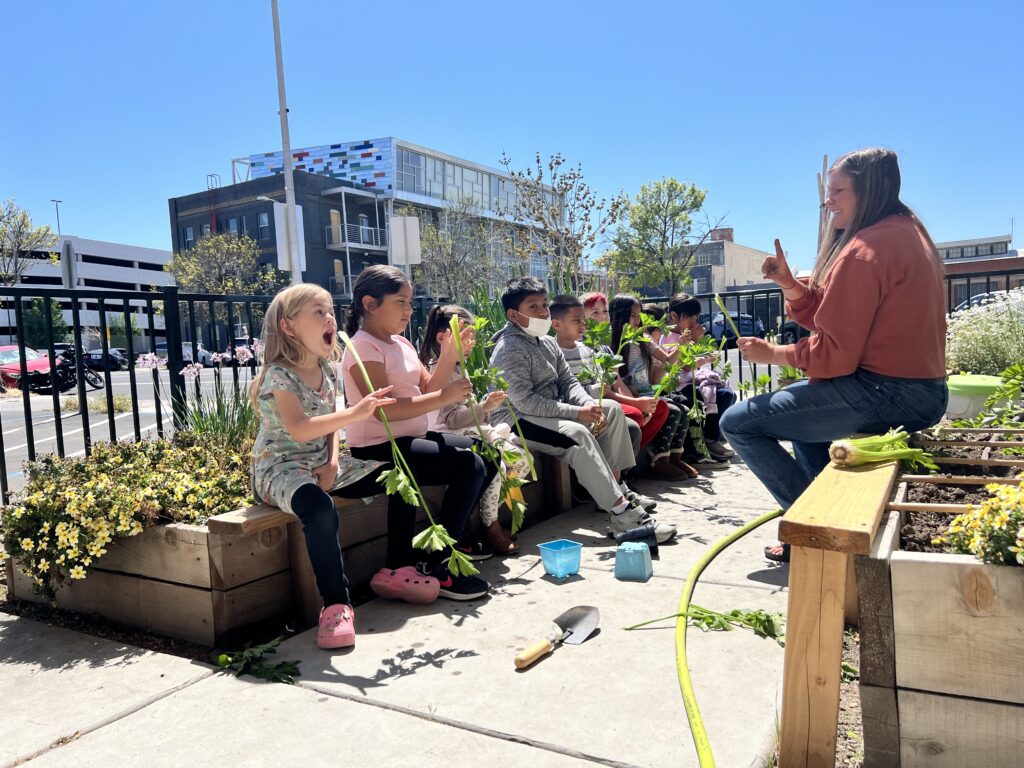
To address food disparity and support children in our city’s areas of highest need, Every Neighborhood Partnership is partnering with King Elementary and Kepler Neighborhood School to design and implement a pilot Edible School Garden project. ENP is working to expand the program to include a garden at every one of our after-school program sites by next school year!
This pilot project at King Elementary and Kepler Neighborhood School is called, “ENP’s School Gardens for Fresno Schools,” and is largely funded through a grant under the U.S. Department of Agriculture’s Farm to School Program.
The garden at King Elementary is also a direct result of the work and support of Assistance League Fresno. In 2022, Assistance League designed a blueprint for a school garden at King Elementary and was awarded a $5,000 grant from Kaiser Permanente to help fund the garden. ENP then came alongside Assistance League to bring the complete vision to life!
These partners’ support has played a vital role in launching ENP’s school garden project, providing tangible solutions to the food insecurity crisis in our city.
What is a school garden?
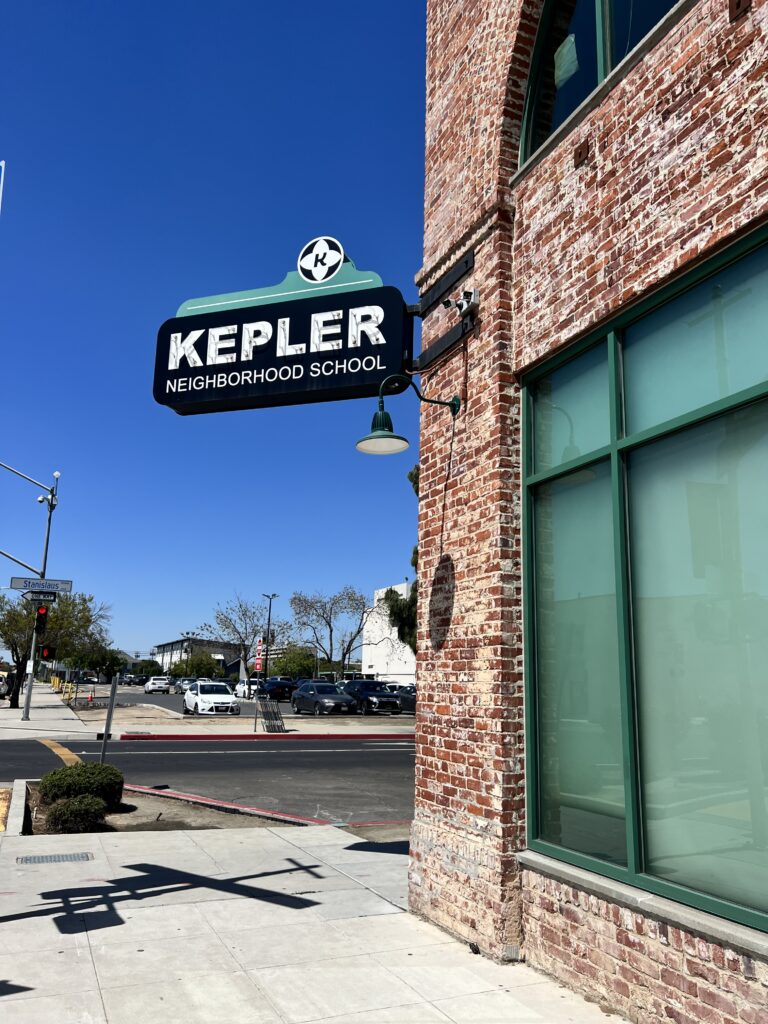
“A school garden can look very different depending on what school you’re at!” says Denise Feil, the Garden Development Director at Kepler Neighborhood School.
Kepler Neighborhood School is in a downtown, urban area surrounded by cement. At first glance, it doesn’t appear to have much space for a garden.
However, Denise noticed an empty, 20 by 15-foot area outside of one of the school’s back doors. Using an above-ground gardening model, she worked with a team to construct raised garden beds, install drip irrigation, and purchase all needed supplies and materials, including seeds and seedlings for edible plants. During the 2022-2023 school year, Denise began teaching classes for the first time in the garden.
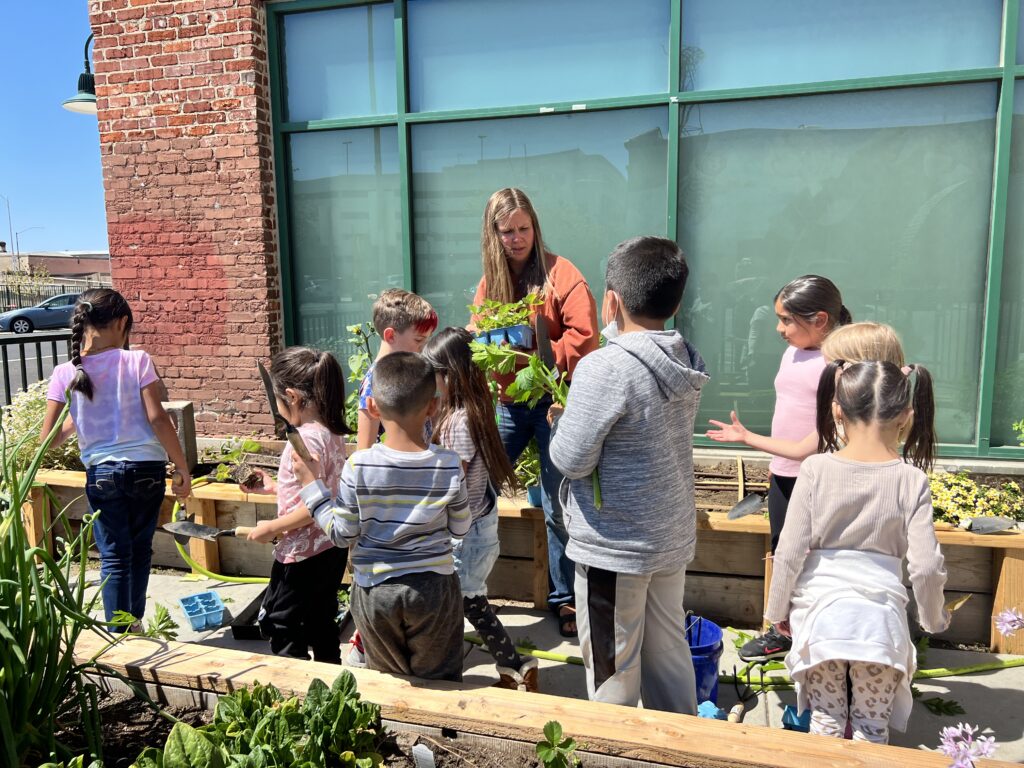
School gardens & food education
“Being a part of a downtown school here in Fresno, [there] is a lack of fresh food grocery stores in the area,” says Denise. “[Through a school garden], we are helping kids recognize that you can grow your own food, learn about healthy eating, and understand why it’s important.”
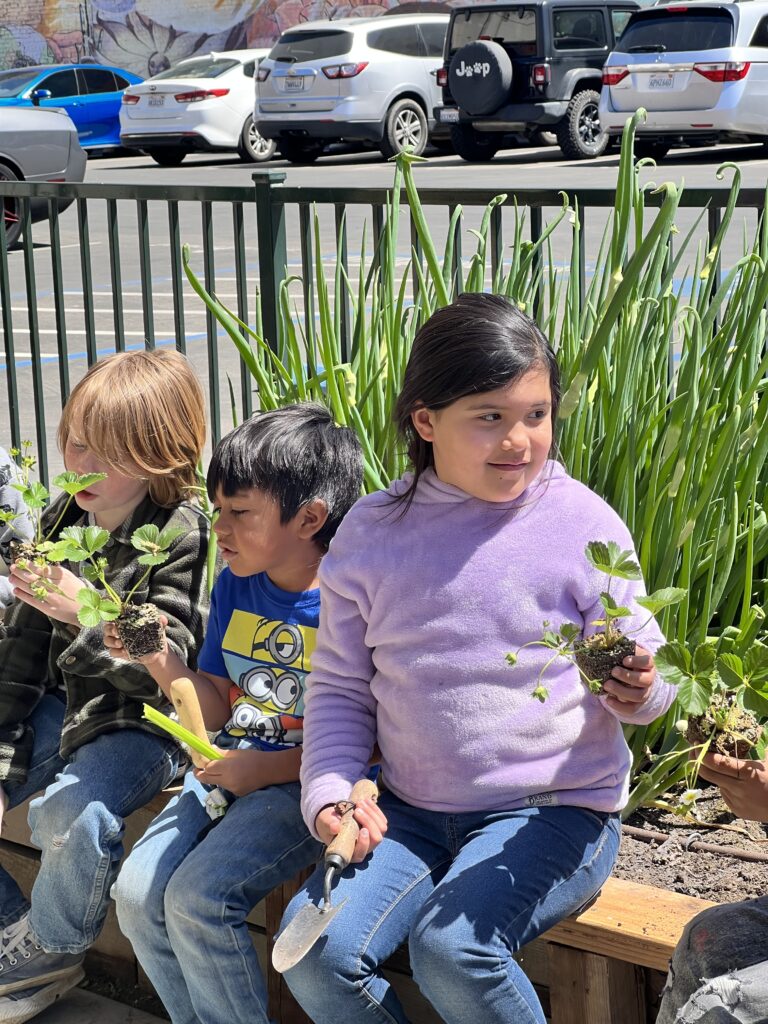
Many of Denise’s students had never even seen foods like broccoli, cauliflower, or celery.
One day, a group of Kepler students harvested their very own giant purple cauliflowers as big as their heads. Many of the students vehemently opposed the idea of eating strange-looking vegetables. However, after a little coercion, the kids finally sampled their home-grown cauliflower.
“Two moms told me the next week that their kids are only asking to eat cauliflower at home!” says Denise.
Eventually, Denise would love to see a farm cart set up outside of the school with fresh fruits and vegetables from the school garden available for parents to take home and cook with.
ENP school garden curriculum
ENP’s pilot program at Kepler Neighborhood School and King Elementary is working to 1) educate kids about agricultural and healthy living, 2) provide healthy produce to students at low-income schools, and 3) serve as a model for other Fresno Unified schools.
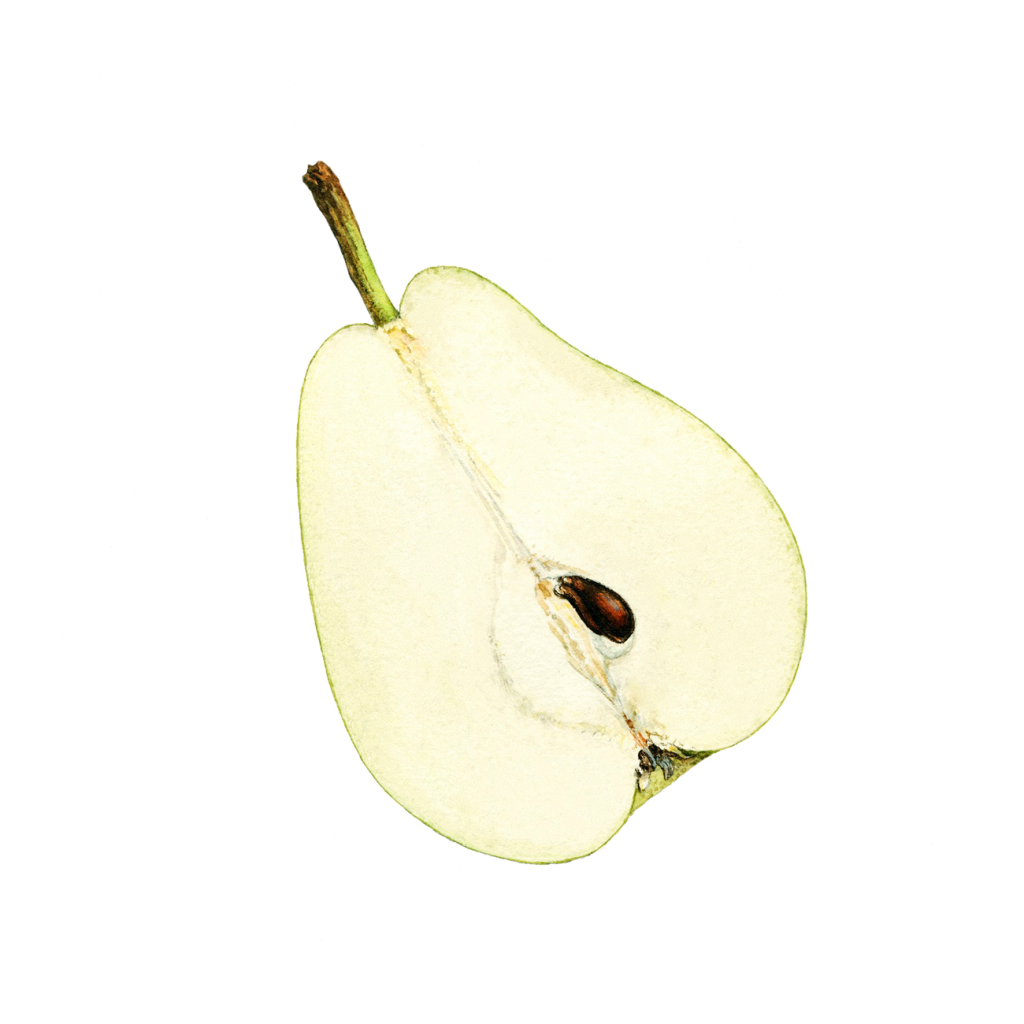
ENP’s “School Gardens at Fresno Schools” program is working to:
1) educate kids about agricultural and healthy living.
2) provide healthy produce to students at low-income schools.
3) serve as a model for other Fresno Unified schools.
Denise is partnering with teachers at Kepler to complement the math, science, and writing standards kids are already learning in their classrooms. “You can teach any [school] standard in a garden!” says Denise. “Gardens can really enhance what is already being taught in schools.”
When learning about decomposers in their science class, 5th graders at Kepler were able to examine a plate of real-life decomposers- worms from their very own garden. After looking at the slimy critters with magnifying glasses and flashlights, the kids returned the worms to their designated bin in the garden. “They were able to have a tangible place to bring [the worms] when they were done learning about decomposers, which is one of their 5th grade science standards!” says Denise.
The ENP School Gardens for Fresno Students program consists of a multifaceted curriculum to be adapted for each school’s needs. The program can involve everything from scheduled planting and harvesting days where kids learn horticulture skills to collaboration with the Food Service staff to integrate the same veggie or fruit kids are growing in the garden into their school meals!
ENP is working to include a garden at every one of our after-school program sites by next school year! The goal is to have 7 mini school gardens which kids will water and maintain while having weekly lessons about horticulture and healthy eating.
ENP is pursuing grant funding to further this project and has secured $6,500 of the $37,000 needed thus far. To help meet this goal, you can donate to ENP HERE and write “school garden” in the note section!
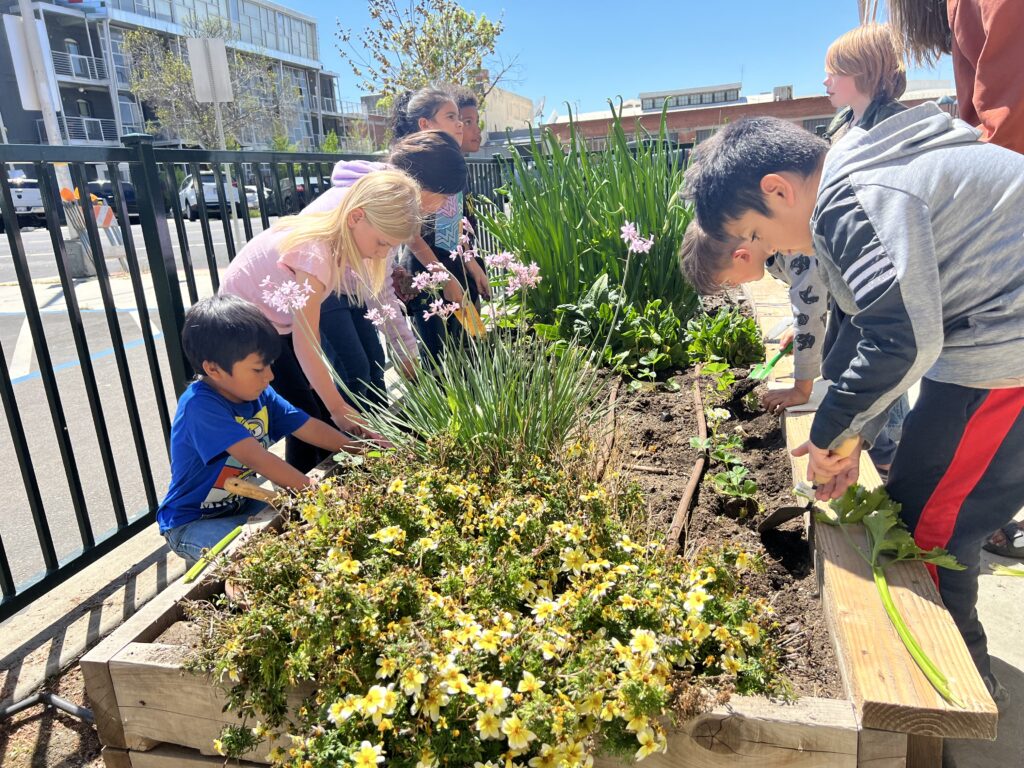
Help your local school start a garden!
If you would like to help start or support a school garden program in your community, you can:
- Reach out to teachers and administrators at your local school and begin dreaming with them about what a garden program could look like!
- Contact ENP and ask how your small group, family, church, or business could do a serve day and offer manual labor to build or support the maintenance of an existing garden!
- Donate to ENP and write “school gardens” in your note. Help us reach our goal of supporting 7 mini school gardens next year!
“As parents or community members, we can complain a lot,” says Denise. “Rather than saying ‘I wish my school or my city did this,’ what does it look like to actually be a proponent of growth? (Literal growth through a school garden, or something else!)
You can complain, you could leave… There are a lot of options.
But when you stay invested where you are, ask lots of questions about what the needs are and how you can serve, you can help build a beautiful city.”

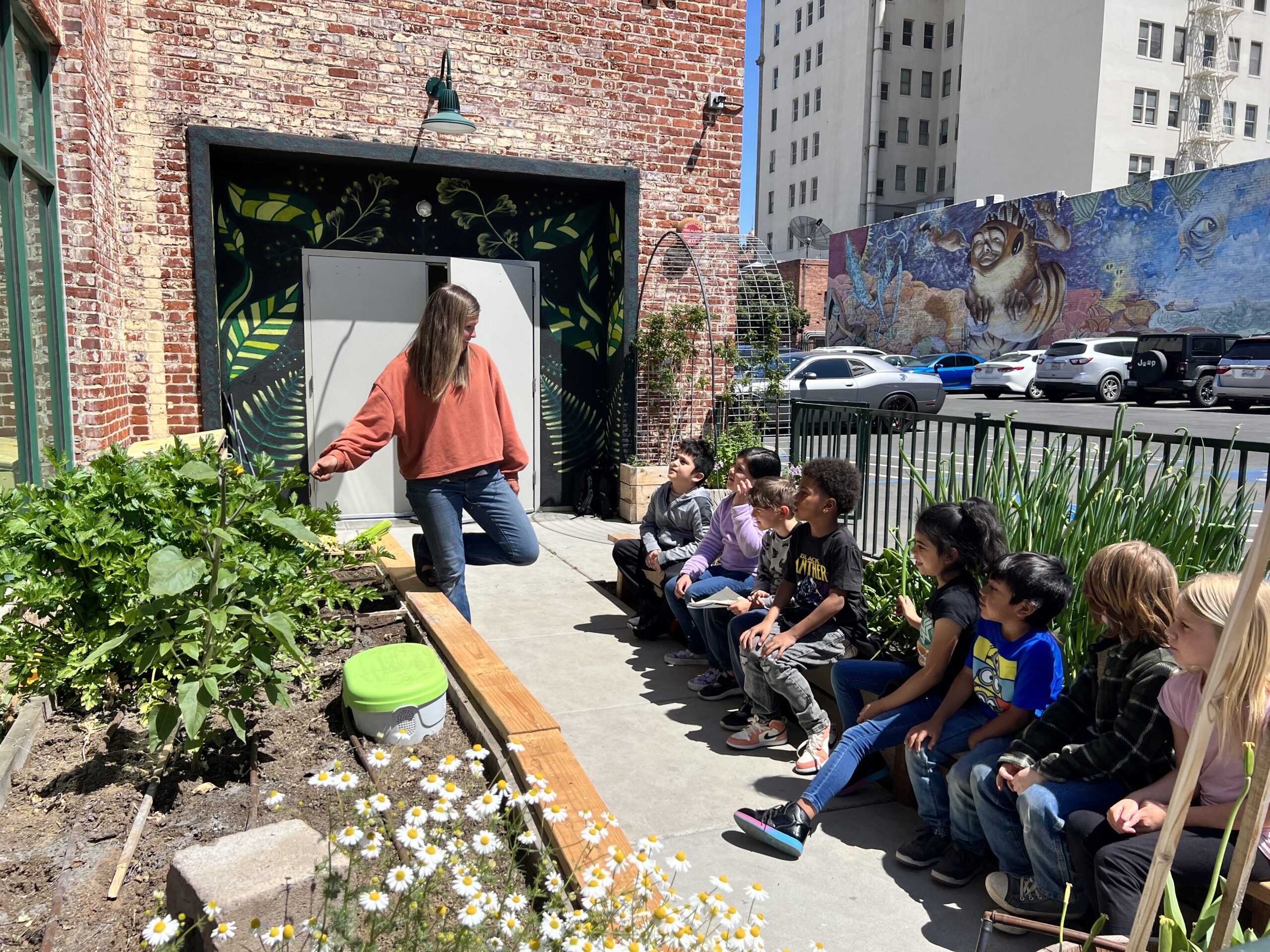


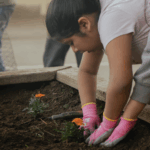


1 comment
Join the conversationKathleen - April 25, 2023
I’m so excited for this! I dream of an apartment complex full of families. One has a tomato vine the other a pepper plant. They grow food for their families and their neighbors, they share. I love what Ag in the Classroom is doing, but I am so excited for the impact ENP will have. I was a city kid in FFA in highschool. It kept me out of trouble and though I was not going to be a farmer, I gleaned so much experience from that program and pride for the central valley.